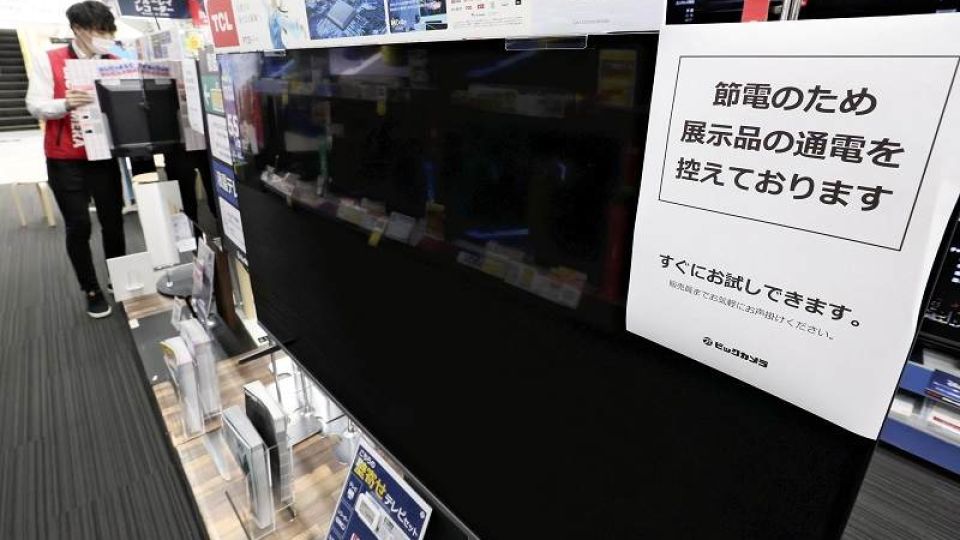December 5, 2022
TOKYO – A power-saving period started Dec. 1, with the government asking households and businesses across the nation to conserve electricity during the winter. The period is set to end in March next year.
It is the first time in seven years that the government has made the request in winter.
Since Russia invaded Ukraine, there has been growing concern over securing energy supplies. In such circumstances, efforts by households and companies are of great significance to avoid massive power outages and other adverse events.
“I would like to conserve electricity with a highly energy-efficient air conditioner,” a 51-year-old public servant in Funabashi, Chiba Prefecture, said Thursday while considering a new model at the BicCamera Yurakucho store in Chiyoda Ward, Tokyo. According to the electronics store, units with lower power consumption are selling well, such as a model capable of detecting people’s movements to warm a room efficiently.
Wearing layered clothing to stay warm also helps reduce power use. According to the government, if people wear layered clothing at home and lower their thermostat from 22 C to 20 C, they can reduce daily electricity usage by 2.7%.
If households and businesses participate in a power-saving program that the government is implementing this winter, they will be awarded points that can be spent like money, based on the amount of electricity saved. Households that apply to participating electric power providers before the end of December will receive points worth ¥2,000. Businesses will receive points worth ¥200,000.
Efforts reaching limits

Among businesses making efforts to save power, Odakyu Electric Railway Co. has begun turning off the lights aboard trains during the day and lowered the heating temperature by 1 C. At stations, it has stopped operating some escalators and ticket vending machines during hours when there are fewer users.
NTT Docomo Inc. has introduced a function to reduce the transmission of frequencies at base stations late at night and at times when communication volume decreases. The function has been introduced at nearly 100,000 base stations across the nation and can help reduce electricity usage by up to 30%. Yamaha Motor Co. automatically turns off the power supply to production equipment that is not in operation.
However, some companies caution that such efforts are reaching their limits. “Since before the power-saving request was issued, we have been doing everything we can do to save electricity, also for the purpose of cutting costs. Further measures could negatively affect our business,” said a spokesperson at a major retailer.
Worse than numbers show
The electricity reserve margin, which indicates the surplus capacity of the power supply during peak demand, is projected to be 4-5% in January 2023 for areas served by power companies other than Hokkaido Electric Power Co. and Okinawa Electric Power Co. The figures are above the minimum 3% required for a stable supply, so the government is asking people to conserve electricity to a reasonable degree.
However, Hiroshi Okamoto, executive vice president of TEPCO Power Grid, Inc., said: “These figures are based on the assumption that we will be able to secure stable fuel supply. The situation is worse than what these numbers show.”
Power companies are trying to bolster their supply capacity by restarting thermal power plants that have long been suspended due to their aged facilities and increasing the stock of liquefied natural gas (LNG). The government announced that it would make the most of nuclear power plants that have already been restarted. This winter, up to nine nuclear reactors are expected to be in operation.
If the situation in Ukraine disrupts the supply of LNG from Russia or if unexpected trouble occurs at aging thermal power plants or other facilities, the supply capacity will decline significantly. If the estimated reserve margin goes below 3%, the Economy, Trade and Industry Ministry will issue a power crunch warning, as it did in March this year, to ask people to further conserve energy.
A source close to the government said, “To be prepared for the worst, it is essential to save energy in daily life.”

